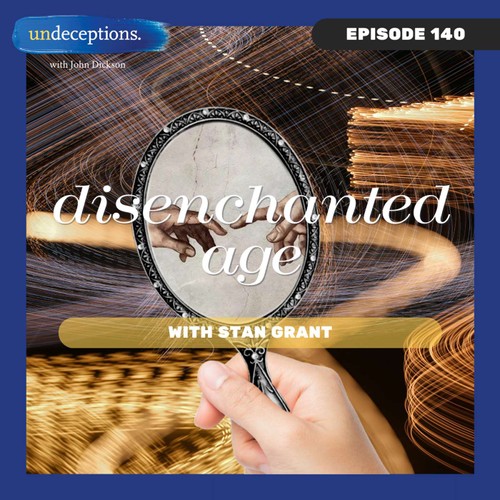
 Undeceptions with John Dickson
Undeceptions with John Dickson 140. Disenchanted Age
Dec 1, 2024
Stan Grant, a distinguished Australian journalist and professor known for his work on Indigenous issues, engages in a thought-provoking conversation about the Enlightenment's impact on society today. He discusses the significance of the Voice to Parliament and shares his personal journey in journalism. Grant challenges the notion of disenchantment, exploring identity, faith, and the importance of truth-telling in a divided world. His reflections on suffering and the potential for forgiveness reveal deep insights into the intersection of culture and belief.
AI Snips
Chapters
Books
Transcript
Episode notes
Referendum Reflection
- Stan Grant describes the emotional impact of the Indigenous Voice to Parliament referendum's "no" vote.
- He emphasizes the need for national dialogue and reconciliation beyond political divisions.
Re-enchantment and Solace
- Stan Grant's new book explores themes of disenchantment, re-enchantment, and the search for meaning in a secular world.
- The book delves into time, God's place in the universe, mortality, and finding solace in love and connection.
Augustine and Indigenous Spirituality
- Stan Grant discusses St. Augustine's concept of time and God's unknowability.
- He connects this to the Indigenous understanding of a divine creative spirit and the limitations of human knowledge.






